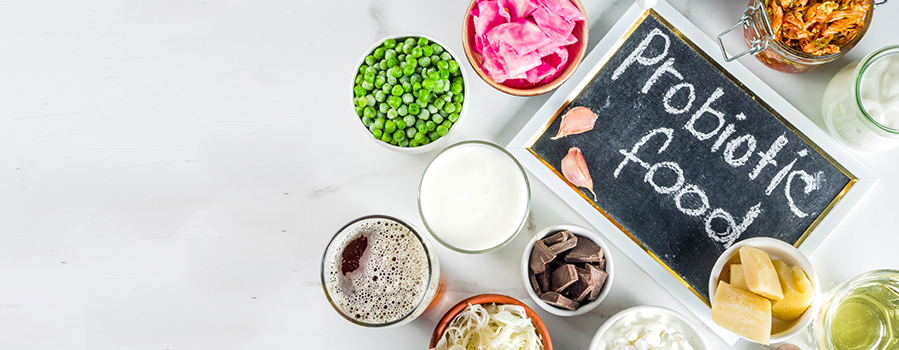What are probiotics?
Probiotics are live microorganisms that are intended to have health benefits when consumed or applied to the body. They can be found in yogurt and other fermented foods, dietary supplements, and beauty products.
Although people often think of bacteria and other microorganisms as harmful “germs,” many are actually helpful. Some bacteria help digest food, destroy disease-causing cells, or produce vitamins. Many of the microorganisms in probiotic products are the same as or similar to microorganisms that naturally live in our bodies.
What types of bacteria are in probiotics?
Probiotics may contain a variety of microorganisms. The most common are bacteria that belong to groups called Lactobacillus and Bifidobacterium. Other bacteria may also be used as probiotics, and so may yeasts such as Saccharomyces boulardii.
Different types of probiotics may have different effects. For example, if a specific kind of Lactobacillus helps prevent an illness, that doesn’t necessarily mean that another kind of Lactobacillus or any of the Bifidobacterium probiotics would do the same thing.
Are prebiotics the same as probiotics?
No, prebiotics aren’t the same as probiotics. Prebiotics are nondigestible food components that selectively stimulate the growth or activity of desirable microorganisms.
What are synbiotics?
Synbiotics are products that combine probiotics and prebiotics.
How popular are probiotics?
The 2012 National Health Interview Survey (NHIS) showed that about 4 million (1.6 percent) U.S. adults had used probiotics or prebiotics in the past 30 days. Among adults, probiotics or prebiotics were the third most commonly used dietary supplement other than vitamins and minerals. The use of probiotics by adults quadrupled between 2007 and 2012. The 2012 NHIS also showed that 300,000 children age 4 to 17 (0.5 percent) had used probiotics or prebiotics in the 30 days before the survey.
How might probiotics work?
Probiotics may have a variety of effects in the body, and different probiotics may act in different ways.
Probiotics might:
Help your body maintain a healthy community of microorganisms or help your body’s community of microorganisms return to a healthy condition after being disturbed Produce substances that have desirable effects Influence your body’s immune response. How are probiotics regulated in the United States? Government regulation of probiotics in the United States is complex. Depending on a probiotic product’s intended use, the U.S. Food and Drug Administration (FDA) might regulate it as a dietary supplement, a food ingredient, or a drug.
Many probiotics are sold as dietary supplements, which don’t require FDA approval before they are marketed. Dietary supplement labels may make claims about how the product affects the structure or function of the body without FDA approval, but they aren’t allowed to make health claims, such as saying the supplement lowers your risk of getting a disease, without the FDA’s consent.
If a probiotic is going to be marketed as a drug for treatment of a disease or disorder, it has to meet stricter requirements. It must be proven safe and effective for its intended use through clinical trials and be approved by the FDA before it can be sold.

